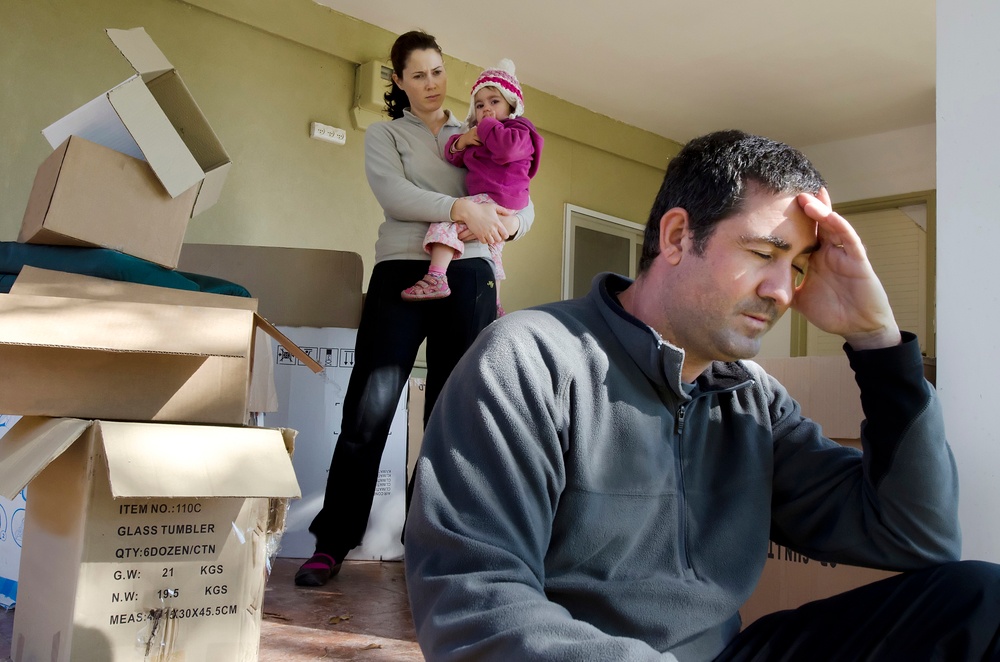Who should move out when the relationship ends?
Aug 9, 2018 9:05:41 AM
You fell in love. You moved in together - maybe even bought a house together - but now it's over. One of the first logistical questions that inevitably arises is who should move out? It's a significant decision, not just in the practical or emotional sense, but can have legal ramifications when it comes to final asset settlement. Here are a few considerations to keep in mind.
Can One of Us Kick the Other Out?
Not really. There is no set rule when it comes to determining which spouse or partner should move out of the home you shared, but one cannot unilaterally force the other out - legally - without a Court Order. If both of you have lived in a home for a long time as a couple, or if you bought the home as a couple, you are both technically entitled to be there.
Can We Both Live There Even If We've Broken Up?
If you and your spouse/partner can co-exist in the same space amicably, it is very possible to be legally separated but both continue living in the same home. As the cost of living - especially rent - continues to rise, this arrangement is becoming more common. The relationship will be more like living with a roommate, not a lover or romantic partner. To be considered "separated," the two of you will essentially live separate lives. If you and your spouse have a high degree of conflict and animosity, however, it really makes the most sense for one of you to leave.
How Can a Court Tell We Were Separated If We Were Still Living Together?
Presumably, you no longer shared a bedroom, but that itself isn't determinative. The Court will be looking at how you interacted with each other before and after the date you officially separated.
For example:
- Were you still intimate?
- Were you still telling people - or acting like - you were a couple?
- Were you still sharing bank accounts?
- Were you still doing a lot of things together or were you basically roommates?
Should I Stay or Should I Go?
Unlike The Clash's song, the answer to this question should not be determined solely by the other person. To save as much legal heartache and hassle later, it's best if this is an informed decision and you and your ex talk about factors that will affect the ultimate divorce settlement. For this reason, both of you should consider seeing (separate) divorce lawyers. A family lawyer will be able to advise you on your best interests when it comes to how the following considerations will affect the property settlement:
- Whether the home is owned or rented;
- Whether the home is fully paid for or there are outstanding mortgages, etc.;
- Whether or not the ex who continues living in the home pays "rent" to the other;
- What happens if the person living in the house doesn't pay the bills or mortgage;
- Whether you or your ex should be paying spousal support/maintenance to the other and how this would affect the equalisation of property later;
- Whether it's better for you and your ex to just sell the house now and split the proceeds; and
- Any other factors that exist in your particular situation.
How Can We Decide Who Stays and Who Moves Out?
Apart from the legal considerations, the decision on who continues living in the home and who moves may depend on important practical situations. If possible, you and your spouse/partner should take an honest look at your respective situations, such as:
- How far away do you work? The reality for most homeowners is that homes away from city centres are more affordable. Take a look at your respective commutes. Does one spouse/partner work really far away? Is one person's commute much easier than the other's? For example, if one of you has a 45-minute drive and the other has an hour and a half public transit commute with three transfers, the latter may wish to move closer to their place of employment.
- Who is in a better position to pay the home expenses? Generally, the person who continues living in the house is in charge of paying utilities, mortgage, and related expenses. Pending final divorce settlement, one may be asked to pay support/maintenance to the other so that bills continue to be paid. Conversely, another valid consideration is which one of you is in a better position to find and pay for a new residence?
- Where are your support networks? If one spouse/partner's family and friends live close to the home you shared, and the other's support network is in a different neighbourhood or city, it may make more sense for both of you to stay or move close to their separation support network. Breaking up - and all the legalities that come with breaking up - can be emotionally taxing.
Know Your Rights
It is possible to have an amicable divorce and property settlement if both parties are mature, practical people. Regardless, it is always a good idea to know what you are entitled to and how to protect your rights should your ability to communicate and fairly negotiate break down. Find out what you can from a family lawyer, divorce mediators, and sources like our new ebook, "Property Settlement: Know Your Rights When Dividing Property Assets."



